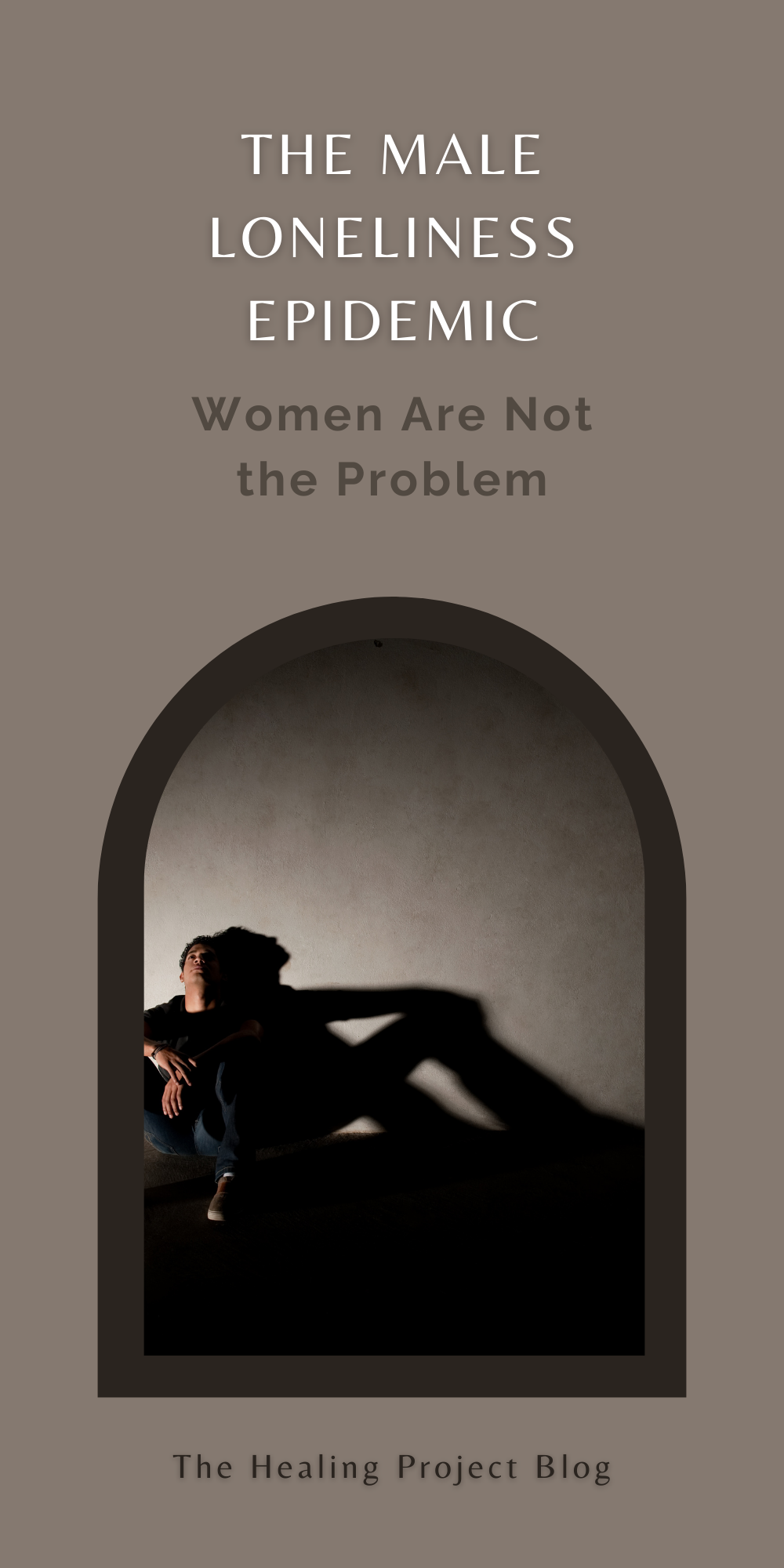The Male Loneliness Epidemic: Women Are Not the Problem
The so-called "male loneliness epidemic" is real—but the way it’s being framed in the media is not just misleading, it’s dangerous. Instead of addressing the root causes of why men struggle with emotional connection and healthy relationships, society is shifting the blame onto women.
Women are being told that their refusal to tolerate abuse, neglect, or one-sided household and emotional labor is somehow the reason why men are lonely.
Let’s get something straight: Women are not responsible for men’s emotional well-being. And they certainly aren’t responsible for fixing a crisis that stems from societal expectations that discourage men from:
- developing emotional intelligence
- prioritizing self-growth
- and seeking meaningful connections outside of romantic relationships.

Men's Experiences of the "Loneliness Epidemic"
Men are lonelier than ever, and there are statistics to back it up. Studies have shown that men report fewer close friendships than they did decades ago, with a staggering number of them relying solely on romantic partners for emotional support.
Meanwhile, women, who have historically been conditioned to prioritize relationships, have started drawing firmer boundaries, recognizing that they deserve partnerships rooted in mutual care—not servitude.
But here’s the part that the media isn’t emphasizing: Men’s loneliness isn’t caused by women’s standards rising.
It’s caused by a system that discourages men from forming deep, supportive relationships with other men and from doing the inner work required to be safe and emotionally available partners.

Women's Experiences
And let’s not ignore the fact that many women stay in harmful relationships out of fear—because leaving can be deadly.
According to statistics, women are at the highest risk of being killed by a partner after they try to leave. Yet, the media narrative conveniently ignores this reality in favor of blaming women for prioritizing their safety and well-being.
Meanwhile, women who do choose to remain single are met with ridicule. They’re labeled as "spinsters," "crazy cat ladies," or told they’ll "die alone"—as if being in a harmful relationship is the better alternative.
This kind of shaming reinforces the idea that a woman’s worth is measured by her attachment to a man, rather than her own happiness and security.
The truth is, many women would rather be alone with their pets than endure mistreatment, and that’s a rational, self-protective choice—not a failure.

Shifting the Narrative
Where Do We Go From Here?
Instead of guilting women into returning to toxic dynamics, we need to focus on how men can address their own loneliness. Here are some starting points:
- Encouraging Emotional Literacy: Men need safe spaces to talk about their feelings, express vulnerability, and seek help when needed—without stigma. Therapy, men’s support groups, and mentorship can be transformative.
- Building Male Friendships: Deep, meaningful friendships with other men can alleviate loneliness without placing the entire emotional burden on a romantic partner. Strong male friendships should be normalized and celebrated.
- These relationships need to go beyond surface-level discussions of sports or work and allow men to truly connect on an emotional and personal level.
- Unlearning Toxic Beliefs About Relationships: The idea that women exist to fix men or that relationships are a right rather than a privilege needs to go. Relationships thrive when both partners contribute equally to emotional labor and mutual support.
- Holding the Media Accountable: We need to push back against the dangerous rhetoric that frames women as villains for choosing healthier relationships—or for choosing to be alone rather than settle for mistreatment.

The Bottom Line
The loneliness epidemic is real, but blaming women is a distraction from the real issue: the need for systemic change in how men are socialized and supported in their emotional growth.
Women are not responsible for men’s healing.
Men have to take responsibility for their own well-being, just as women have had to do for centuries. The solution isn’t to drag women backwards—it’s to push everyone forward.
In support of the healing and growth of all,
Gretchen
SOMATIC TRAUMA SPECIALIST + ENERGETIC INTUITIVE
@gretchenlakshmi on Instagram
SHARE ON PINTEREST








